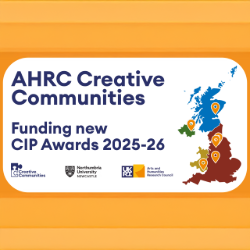-
Study
-
Undergraduate
- UCAS Clearing & Confirmation 2025
- Application Guides
- UCAS Exhibitions
- Extended Degrees
- School & College Outreach
- Information for Parents
-
Postgraduate
- Application Guide
- Postgraduate Research Degrees
- Flexible Learning
- Change Direction
- Register your Interest
-
Student Life
- Students' Union
- The Hub - Student Blog
- Accommodation
- Northumbria Sport
- Support for Students
-
Learning Experience
- Real-World Learning
- Research-enriched learning
- Graduate Futures
- The Business Clinic
- Study Abroad
-
-
International
International
Northumbria’s global footprint touches every continent across the world, through our global partnerships across 17 institutions in 10 countries, to our 277,000 strong alumni community and 150 recruitment partners – we prepare our students for the challenges of tomorrow. Discover more about how to join Northumbria’s global family or our partnerships.
View our Global Footprint-
Quick Links
- Course Search
- Undergraduate Study
- Postgraduate Study
- Information for Parents
- London Campus
- Northumbria Pathway
- Cost of Living
- Sign up for Information
-
International Students
- Information for International Students
- International Events
- Application Guide
- Entry Requirements and Education Country Agents
- Global Offices
- English Requirements
- English Language Centre
- International student support
- Cost of Living
-
International Fees and Funding
- International Undergraduate Fees
- International Undergraduate Funding
- International Masters Fees
- International Masters Funding
- International Postgraduate Research Fees
- International Postgraduate Research Funding
-
International Partners
- Agent and Representatives Network
- Global Partnerships
- Global Community
-
International Mobility
- Study Abroad
- Information for Incoming Exchange Students
-
-
Business
Business
The world is changing faster than ever before. The future is there to be won by organisations who find ways to turn today's possibilities into tomorrows competitive edge. In a connected world, collaboration can be the key to success.
More on our Business Services -
Research
Research
Northumbria is a research-rich, business-focused, professional university with a global reputation for academic quality. We conduct ground-breaking research that is responsive to the science & technology, health & well being, economic and social and arts & cultural needs for the communities
Discover more about our Research-
Quick Links
- Research Peaks of Excellence
- Academic Departments
- Research Staff
- Postgraduate Research Studentships
- Research Events
-
Research at Northumbria
- Interdisciplinary Research Themes
- Research Impact
- REF
- Partners and Collaborators
-
Support for Researchers
- Research and Innovation Services Staff
- Researcher Development and Training
- Ethics, Integrity, and Trusted Research
- University Library
- Vice Chancellors Fellows
-
Research Degrees
- Postgraduate Research Overview
- Doctoral Training Partnerships and Centres
- Academic Departments
-
Research Culture
- Research Culture
- Research Culture Action Plan
- Concordats and Commitments
-
-
About Us
-
About Northumbria
- Our Strategy
- Our Staff
- Our Schools
- Place and Partnerships
- Leadership & Governance
- University Services
- History of Northumbria
- Contact us
- Online Shop
-
-
Alumni
Alumni
Northumbria University is renowned for the calibre of its business-ready graduates. Our alumni network has over 250,000 graduates based in 178 countries worldwide in a range of sectors, our alumni are making a real impact on the world.
Our Alumni - Work For Us
What will I learn on this module?
This module is the capstone project in your degree and enables you to concentrate on an area of film practice that is of great interest to you. The module invites you to conduct significant practice-based research utilising your creative skills. Your choice of topic may arise from a specific interest developed through theoretical and/or practical experience on the degree in previous years and/or from extra-curricular or professional contexts. The module is flexible to your interests, passions and future directions: tutors will work with you to help you develop topics that are exciting and innovative. Your in-depth research skills will translate into polished final outputs, equipping you with knowledge of contemporary film practice, technological insight and a professional and employable skill set and expertise relevant to further study at MA and PhD level.
How will I learn on this module?
This capstone module gets you the opportunity to produce a portfolio of work that is the culmination and demonstration of all that you have learned in the programme modules. You propose your own research project on an area of film practice. The resulting work is presented in via a creative portfolio of work alongside a written critical evaluation engaging with the ideas and materials of your portfolio. Via its emphasis on guided independent work, the module allows you to develop personal insight while being supported by the teaching team’s experience and expertise. Outside of the taught sessions, you will be expected to engage with module-relevant reading in preparation for the sessions. An electronic reading list is supplied via the e-Learning Portal, which will guide you towards appropriate resources, although you are encouraged to explore the wider library catalogue to engage with additional sources too. During your independent working time, it is also expected that you will apply the ideas raised in the reading and the taught content to film and media examples of your own choosing (reflecting your individual interests), and to your own practice.
How will I be supported academically on this module?
We support your learning by providing on-going feedback (formative and summative) through the range of teaching and learning approaches offered. We ask you to submit your work electronically, and we will supply feedback via Turnitin. You will be able to compare your feedback across modules so that you can assess your development as you progress through the programme.
Formative assessment is offered throughout the module, and summative assignments will receive written feedback within 20 working days of assignment submission. Every tutor has set weekly feedback and tutorial drop-in hours, wherein you can seek advice on your academic progress. Where appropriate you may also be directed to engage with our Skills Plus or other resources offered through the University Student Support Services such as Dyslexia Support. Guidance tutorials also provide opportunities for students to discuss, in confidence, their academic progress on the programme.
What will I be expected to read on this module?
All modules at Northumbria include a range of reading materials that students are expected to engage with. Online reading lists (provided after enrolment) give you access to your reading material for your modules. The Library works in partnership with your module tutors to ensure you have access to the material that you need.
What will I be expected to achieve?
Knowledge & Understanding:
• Display evidence of critical thinking in the development of your own specialism and practice by assembling an appropriate creative portfolio.
• Defend/account for your concepts with reasoned judgement through the creation of a portfolio of work.
Intellectual / Professional skills & abilities:
• Identify and contextualise your personal practice in relation to film practice.
• Demonstrate sound technical proficiency in the manipulation of materials and knowledge of appropriate technology.
Personal Values Attributes (Global / Cultural awareness, Ethics, Curiosity) (PVA):
• Engage with professional contexts and industry to articulate the necessary skills to become innovative, collaborative and ethical practitioners in the creative industries.
How will I be assessed?
FORMATIVE ASSESSMENT: To prepare you successfully to undertake the summative assessment(s) on this module, formative assessments will be set by the module team. These may take the form of in-class tasks or projects, developmental activities undertaken between classes, or learning exercises/activities set over a longer period. Feedback (written and/or oral) will be provided to help you learn from, reflect on, and develop in light of these formative assessments.
Summative assessment: There are two summative assessments on this module:
1) A research proposal (1500 words) outlining your project and practice-based approach and annotated documentation of research and development work. (25%)
2) A creative portfolio of work and a (3000 words) written critical evaluation and contextualisation of the work and process. (75%)
You will receive formative feedback from your peers and the module tutor throughout the course, allowing you to apprehend how your critical skills are developing. You will receive a detailed commentary and a summative mark on your work in accordance with the assessment (supplied on the eLP). Under normal circumstances, you will receive written feedback on your summative submissions within 20 working days. The feedback will normally be supplied electronically as part of the ESAF process. This feedback will provide a detailed account of your skills, critical engagement and communicative ability, as well as supporting future learning by indicating areas for development. You can also request additional verbal feedback on your submissions by arranging a meeting with the module tutor.
Pre-requisite(s)
N/A
Co-requisite(s)
N/A
Module abstract
This module is the capstone project in your degree and enables you to concentrate on an area of film practice that is of great interest to you. The module invites you to conduct significant independent research, supported by a supervisor and resulting in a creative portfolio of work. The module is flexible to your interests, passions and future directions: tutors will work with you to help you develop topics that are exciting and innovative. Your in-depth research skills will translate into polished final outputs, equipping you with industry-standard knowledge of contemporary practice, technological insight and a professional and employable skill set.
Course info
UCAS Code P315
Credits 40
Level of Study Undergraduate
Mode of Study 3 years Full Time or 4 years with a placement (sandwich)/study abroad
Department Northumbria School of Design, Arts and Creative Industries, Arts
Location City Campus, Northumbria University
City Newcastle
Start September 2026
All information is accurate at the time of sharing.
Full time Courses are primarily delivered via on-campus face to face learning but could include elements of online learning. Most courses run as planned and as promoted on our website and via our marketing materials, but if there are any substantial changes (as determined by the Competition and Markets Authority) to a course or there is the potential that course may be withdrawn, we will notify all affected applicants as soon as possible with advice and guidance regarding their options. It is also important to be aware that optional modules listed on course pages may be subject to change depending on uptake numbers each year.
Contact time is subject to increase or decrease in line with possible restrictions imposed by the government or the University in the interest of maintaining the health and safety and wellbeing of students, staff, and visitors if this is deemed necessary in future.
Useful Links
Find out about our distinctive approach at
www.northumbria.ac.uk/exp
Admissions Terms and Conditions
northumbria.ac.uk/terms
Fees and Funding
northumbria.ac.uk/fees
Admissions Policy
northumbria.ac.uk/adpolicy
Admissions Complaints Policy
northumbria.ac.uk/complaints









